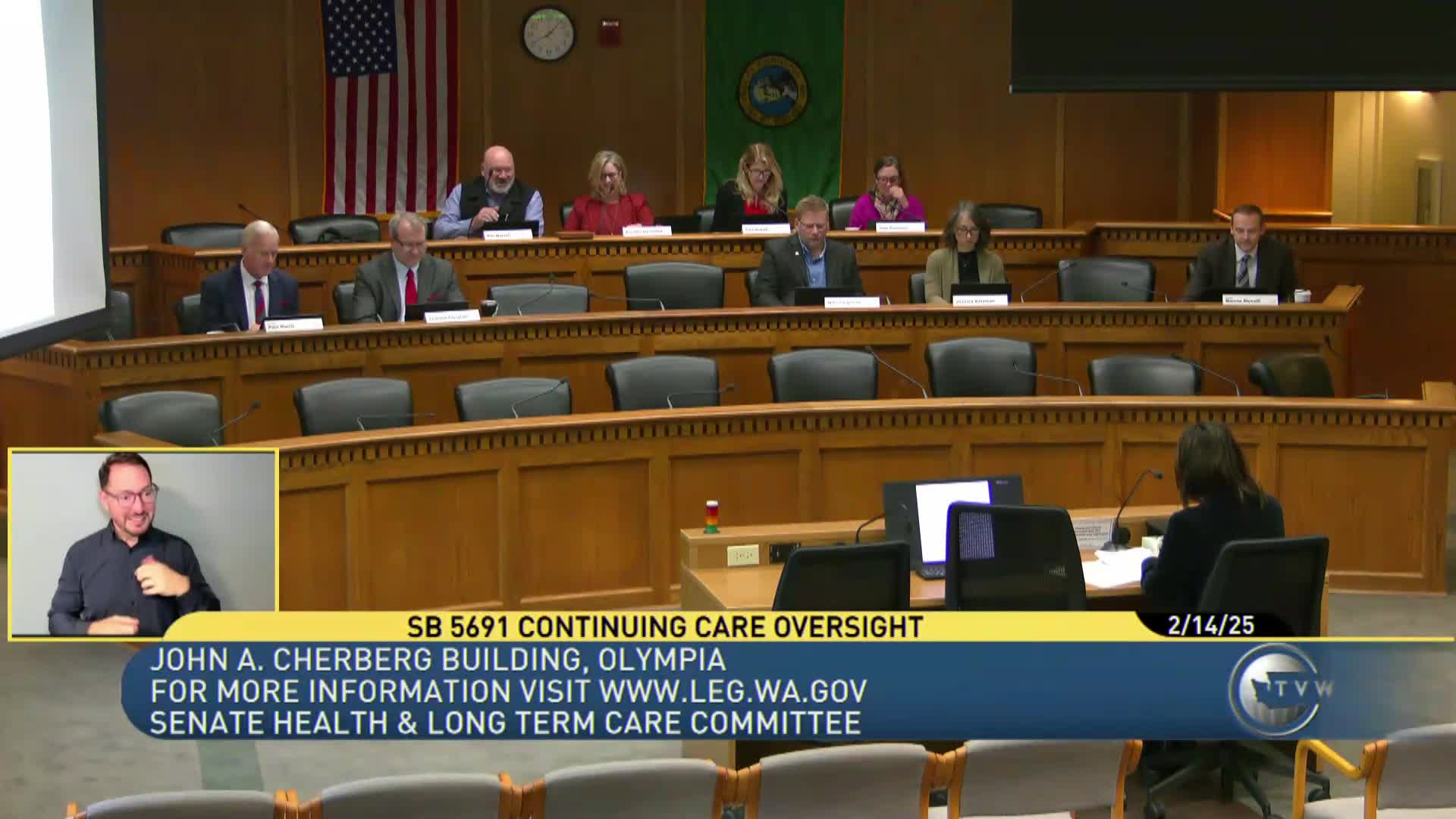Panel hears bill to create new registration, actuarial review and ombuds for continuing care retirement communities
Get AI-powered insights, summaries, and transcripts
Subscribe
Summary
Senate Bill 5691 would require continuing care retirement communities (CCRCs) to register with DSHS under a new process (beginning July 1, 2027), require actuarial reviews of 10-year solvency expectations, limit new registrations prior to that date, and create a senior independent-living ombuds program.
Senate Bill 5691, introduced by Sen. Cleveland, would adopt recommendations from the Department of Social and Health Services’ December 2024 regulatory oversight plan for continuing care retirement communities (CCRCs). The Senate Health & Long Term Care Committee held a public hearing Feb. 14 and heard residents, consumer advocates, providers and DSHS officials.
Nut graf: The bill creates a new registration process for CCRCs beginning July 1, 2027, requires DSHS to issue or deny registration within 60 days of a complete application, and conditions registration on a comprehensive actuarial study demonstrating a reasonable 10-year expectation that the CCRC can provide contracted services. The bill also establishes a senior independent-living ombuds program to represent independent-living residents and requires that DSHS contract with an actuarial organization using current Actuarial Standards of Practice.
Voices at the hearing: Residents and advocates described harm when facilities stopped providing levels of care and when management failures led to safety and service breakdowns. Dr. Laura Saunders, president of the Washington Continuing Care Residents Association (WACRA) and a CCRC resident, described her facility’s recent announcement that it would cease offering skilled nursing and memory care in its prior form and said, “I will have to leave my home” if the change goes forward. Kim Hickman, WACRA vice president, described a 2024 receivership of a Seattle-area facility and the resulting service collapse that prompted residents to seek help from the Attorney General’s Office.
Provider concerns: Representatives of LeadingAge Washington and CCRC operators said they support the report’s general goals but urged changes to avoid imposing expensive actuarial requirements on Type B and Type C contract communities. Alyssa Odegaard (LeadingAge Washington) and Kevin McFeely (FutureAge) told the committee that only four of Washington’s 23 CCRCs operate Type A “life-care” contracts and that actuarial studies and 10-year projections are often produced only for Type A communities; they urged consideration of alternative, less-costly financial metrics or a shorter projection horizon (five years) to improve feasibility and limit cost transfer to residents.
DSHS perspective: Bea Rector, assistant secretary, Aging and Long Term Support Administration (DSHS), said the department supports the bill’s recommendations but will require funding to contract with actuarial experts; the governor’s proposed budget had not provided that funding and the department will include a fiscal note.
Key bill provisions and deadlines noted in testimony: DSHS must not accept applications or issue registrations for new CCRCs before July 1, 2027; CCRCs with registrations issued prior to July 1, 2025 may remain valid until Sept. 30, 2027 if they apply by July 1, 2027. The senior independent-living ombuds program must convene a work group to study data needs and submit a report to the Legislature by Oct. 1, 2028.
Ending: The committee took public testimony and closed the hearing; no committee vote on the bill occurred during the Feb. 14 session.
